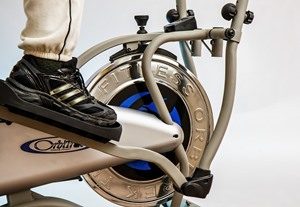
Pixabay
Fitness trends are constantly evolving and improving and according to The Apartment Community, there’s a revolution in the way aging adults exercise today.
More and more aging individuals are now embracing an active lifestyle. Thanks to the widespread availability of information, developed programs and fitness plans customized for older adults.
As more exercise trends continue to pop up, I’m sure many of you want to give one or two a try. With its numerous benefits such as keeping you physically and mentally fit, energetic and independent, starting an active lifestyle is definitely one of the healthiest decisions that you can make for your life.
To help you get started safely, here are 6 tips to keep in mind before jumping into a new fitness routine:
1. Get a go signal from your healthcare provider.
There may be certain activities that you need to avoid, depending on your current health status, pre-existing health problems and medications. So before starting an exercise program, it’s important to consult with your doctor first and get a medical clearance.
2. Get expert advice.
Although the internet offers a plethora of “senior-friendly” exercise programs to follow, it’s still best to go to the experts – whether it’s working with a personal trainer or joining a fitness class. It’s advisable to learn from the professionals to get you on the right track to improving not just your physical health but your self-esteem as well.
3. Start slow.
Remember, this is not a race so just start out slowly but surely. Build your exercise program little by little and slowly increase with ease. You don’t have to do it daily right away. Just space out your work-outs or try just one class once a week when you begin.
4. Never skimp on warm-ups and cool downs.
If you are really doing things on your own, make sure to warm-up before and cool down after you do your workout in order to prevent injury and discomfort.
5. Practice every day exercise.
Performing daily physical tasks will really help a lot in your fitness routine. You may not have to work-out everyday but you can do simple tasks like walking too as many errands as possible, taking the stairs when you can, lifting and carrying grocery bags, gardening, yard work, etc.
6. Listen to your body.
Lastly, you need to listen to your body. Sorry, but your body’s capability to handle physical stress isn’t the same anymore. So when you feel dizzy, out of breath or experience any pain or discomfort, stop your work-out immediately and call your healthcare provider.









